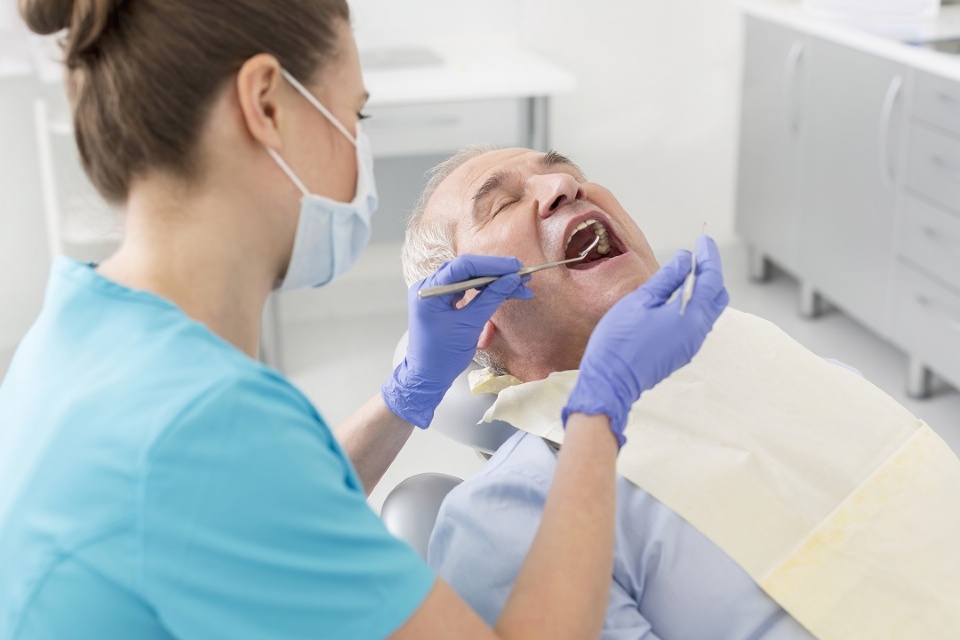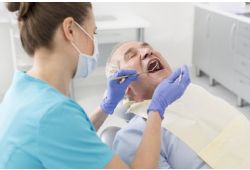Maintaining good oral health is important throughout life. It helps prevent the development of lung infections such as pneumonia, especially for seniors who have a hard time swallowing. Oral hygiene greatly reduces the risk of bacteria entering into the lungs.
As people age, oral health becomes a significant factor due to tooth loss, tooth decay, gum disease (periodontitis), dry mouth (xerostomia) and oral cancers. 96% of adults aged 65+ have had a cavity and 1 in 5 has untreated tooth decay. Good oral hygiene prevents the accumulation of bacteria which reduces the risk of stroke, heart attack and other fatal complications. It is also vital that your loved one has regular dental checkups.
How
to maintain a healthy dental routine
Sometimes older people
lose the dexterity needed to clean their teeth themselves. If your loved one
has dementia, you or their caregiver may need to demonstrate how to brush their
teeth. Place the bristles of the toothbrush where their teeth meet the gums,
pointing upwards. Brush gently with small circular movements, then brush around
each tooth gently and carefully along the gum line. Brush the tongue lightly.
The toothpaste should be spit out, no need to rinse with water afterwards.
Teeth should be brushed twice daily with a soft to medium brush using fluoride toothpaste to prevent gum disease and cavities. A toothbrush should be replaced when it gets worn. Teeth should be flossed at least once daily if possible as it removes food debris and plaque between teeth. Rinsing with a fluoride mouthwash once or twice daily is also an excellent idea. Regular dental visits for cleaning and an oral exam are highly recommended.
Electric toothbrushes may be beneficial for elderly people with limited movement. If your relative finds gripping a standard toothbrush difficult, they may prefer a brush with a flexi-grip handle.
Dentures
If your loved one has
dentures, oral hygiene is still important. The most common problem is ill-fitting
dentures. Dentures should fit well and be comfortable. They should be brushed
daily with a non-abrasive denture product and left in a denture cleansing
solution overnight for a minimum of 4 hours daily.
Keeping dentures clean avoids stains to teeth, swollen gums and bad breath. After removing dentures, the tongue, gums and palate should be gently brushed with a soft toothbrush.
Food and drinks often contain high levels of sugar which damages teeth and causes poor dental health. To help minimize tooth damage, request sugar-free medication and artificial sweeteners. Encourage chewing sugar-free gum as it increases saliva which helps cleanse the mouth and repairs the teeth.
Remember, good oral health can significantly enhance your loved one’s quality of life, making it possible to eat the foods they enjoy comfortably. They will be able to speak and smile with confidence.

 In The Latest Issue:
In The Latest Issue:


 BY:
BY: 

Tweet
Share